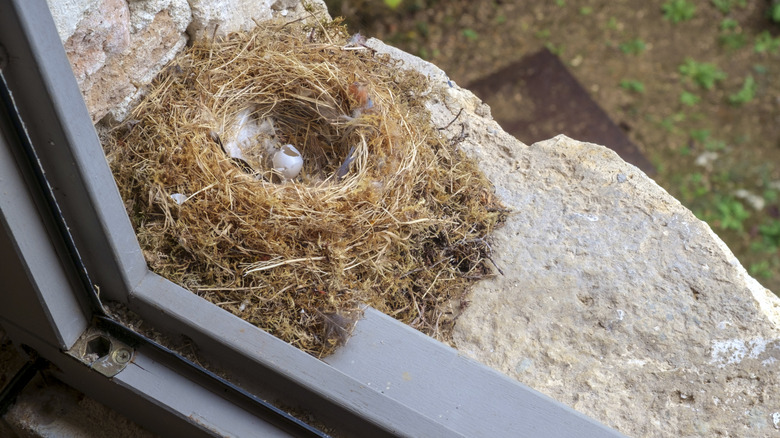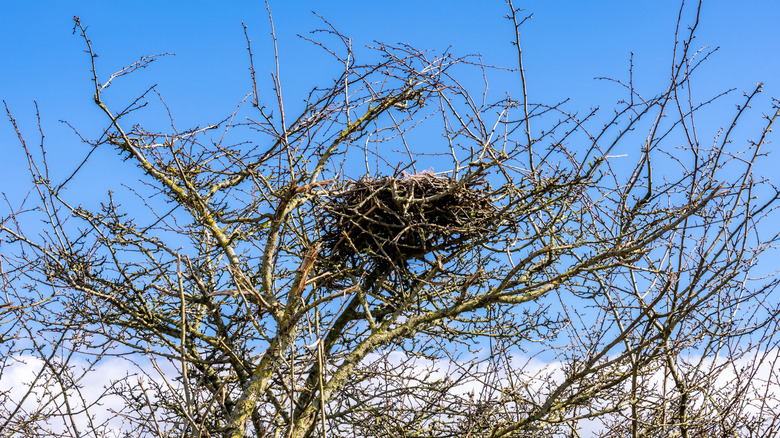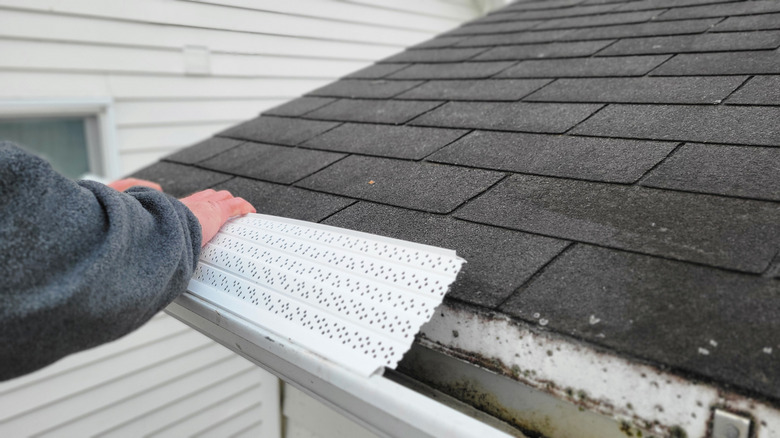Is It Legal To Remove A Wild Bird's Nest?
We may receive a commission on purchases made from links.
Birds are one of the many creatures that may make themselves at home on your property regardless of whether you invited them or not. Although you might enjoy seeing the feathered animals fly in and out of your yard to make visits to any DIY bird houses you have on your property, their nests can be a nuisance if they are in an awkward place. Unfortunately, birds are known to build nests in gutters, on outdoor light fixtures, and other spots you probably don't want them making themselves at home.
In these cases, you might be tempted to relocate the animals' home, but it is illegal to remove a wild bird's nest. According to Chad Witko, Specialist in Avian Biology at the National Audubon Society, you must contact a wildlife expert for advice on how to solve the problem instead.
"In the U.S., most wild bird nests are protected under the Migratory Bird Treaty Act and should not be removed," Witko explained while speaking exclusively to House Digest. "The U.S. Fish & Wildlife Service may issue a permit to remove active nests under very limited circumstances—for example, if the birds are in immediate danger or if the nest causes health or safety concerns. In most cases, it's usually best to leave a bird's nest alone." Let's dive into how to move forward when you locate a wild bird's nest in a spot it doesn't belong.
What to do if you find a wild bird's nest
If you stumble upon a wild bird's nest on your property that you'd like to move, you should call an expert as soon as possible. "If you're considering removing a nest from your property, consult an expert — such as a wildlife agency or licensed rehabilitator — for guidance before taking any action," Witko explained while speaking exclusively to House Digest. This way, you can tackle the problem the legal way.
It is also important to note that it's illegal to move or remove a nest even if it's empty. The Migratory Bird Treaty Act prohibits transporting or destroying a nest that young birds still rely on for survival. Due to these legal limitations, you should always rely on advice from a wildlife agency or licensed rehabilitator about what to do regarding any wild bird nests you find. If the professional is not able to obtain a permit to remove the nest themselves, they may recommend simply leaving it be and allowing the nesting cycle to run its course. This generally only lasts weeks. During this time, you should leave the nest and the surrounding area completely undisturbed.
How to keep bird from nesting on your property
If this is a recurring issue for you, consider exploring ways to keep birds from nesting around your house. This way, you do not have to repeatedly contact a professional, as Witko recommended while speaking exclusively to House Digest, for advice on how to legally manage the nest problem. The animals often attempt to build nests in small openings around buildings. To stop this process before it starts, block off those openings with hardware cloth or pieces of wood. Since birds also often nest in gutters, it's important to block these off, too. To do this, you can install mesh gutter guards like the Sukhavati home Gutter Guard Kit.
Additionally, it's a good idea to trim trees and bushes around your property regularly so that they don't serve as a material source for birds to gather overgrown foliage to build their nests. This won't keep them away from your greenery completely, but it will make it less appealing. Another bird-repelling technique you may not have considered is playing sounds that the feathered animals do not like. This includes the noises their predators make as well as high-frequency noises. You could use an outdoor speaker or a product like the Bird-X BirdXPeller Pro to do this. Now you know what to do to prevent birds from building nests near your home in spots that could potentially threaten their safety or damage your property.


